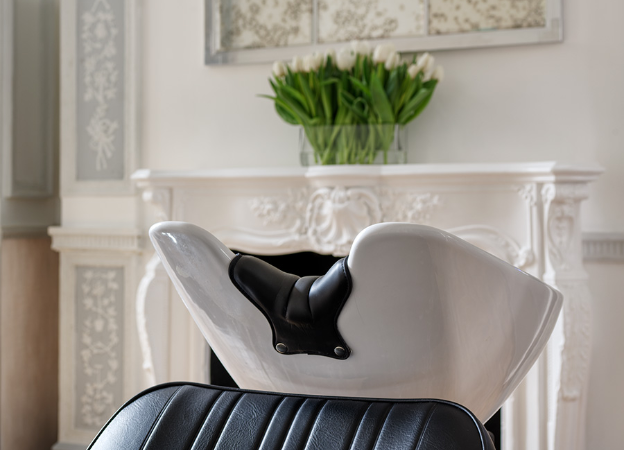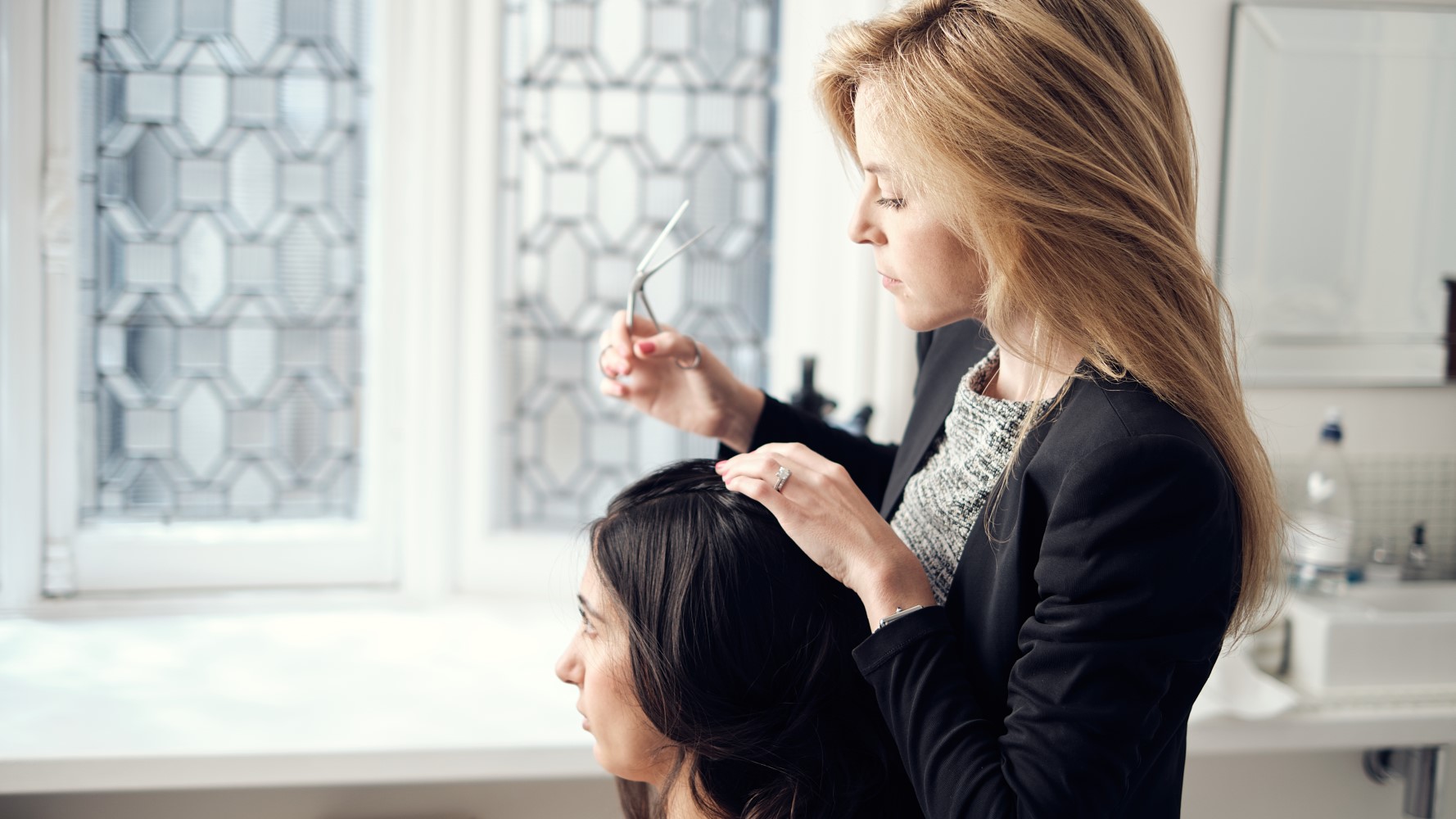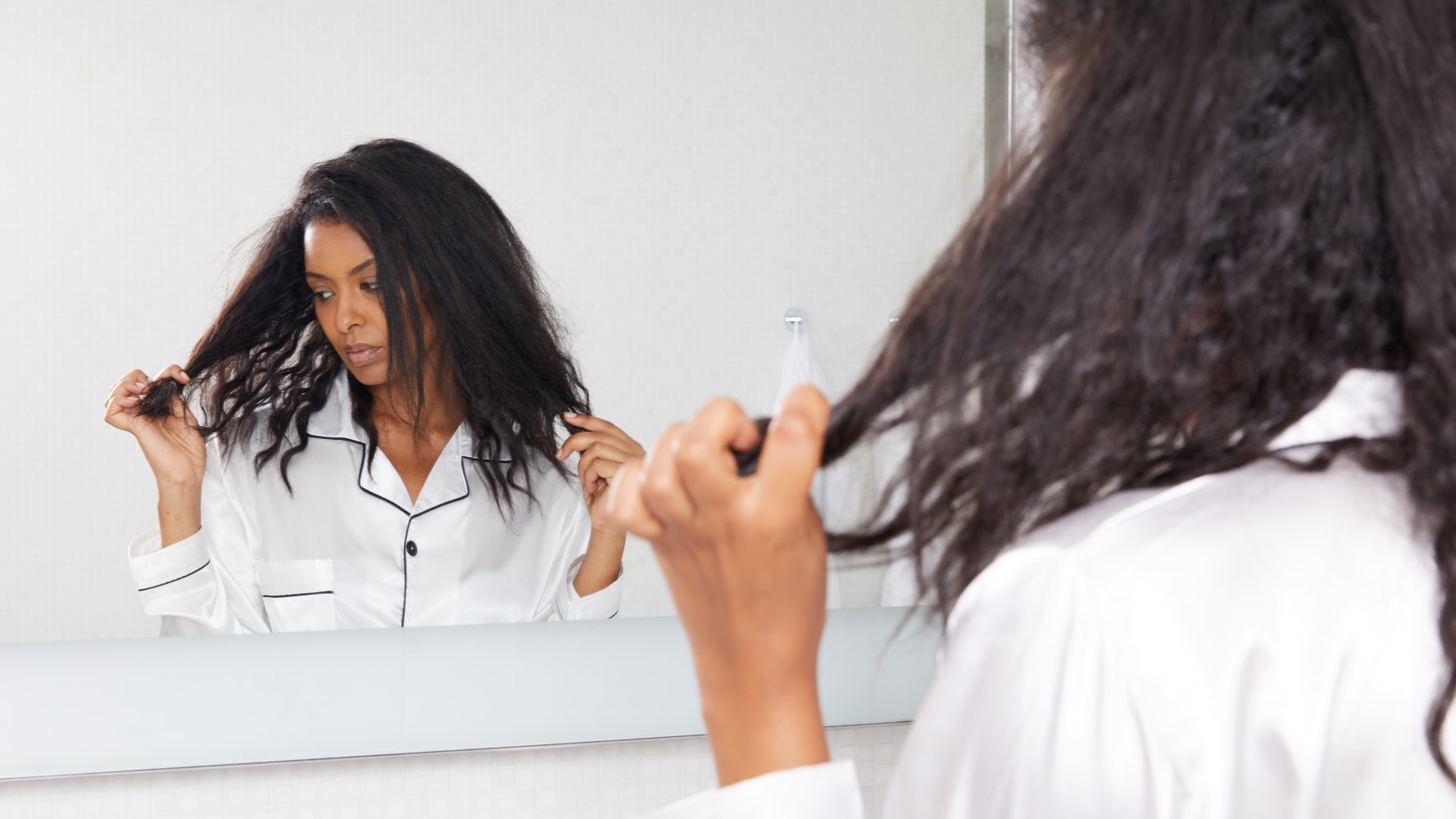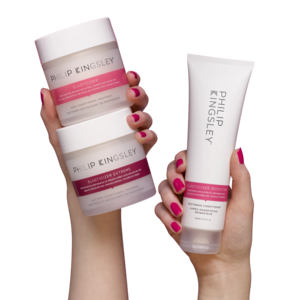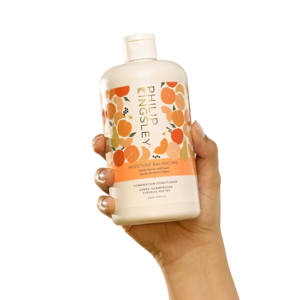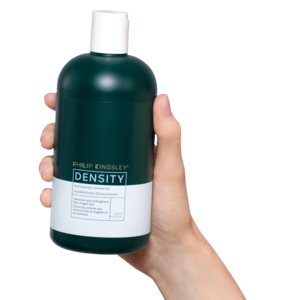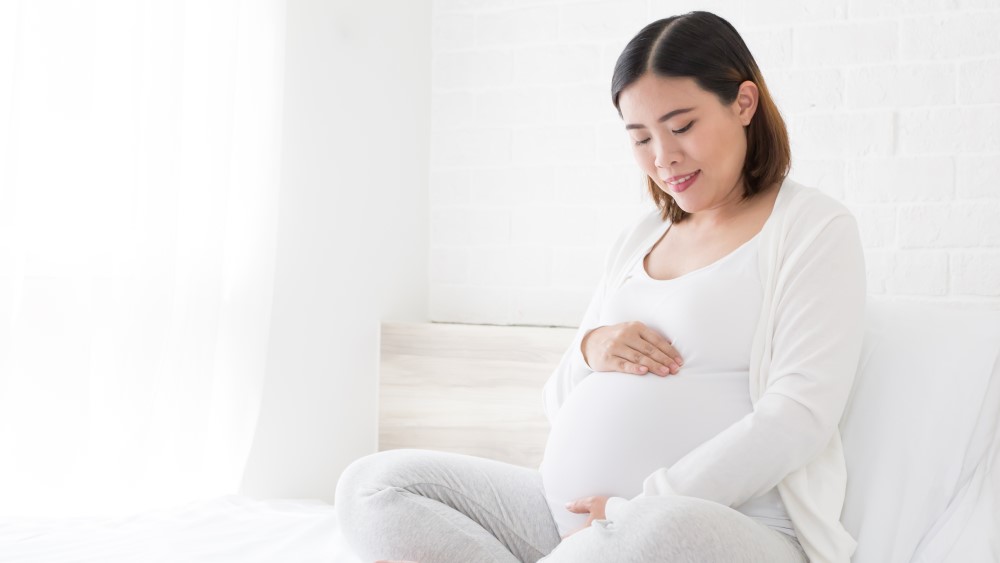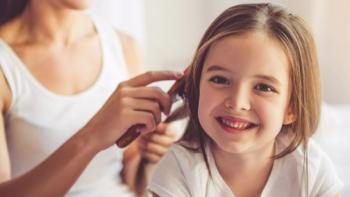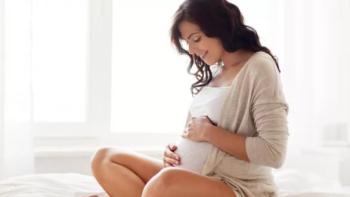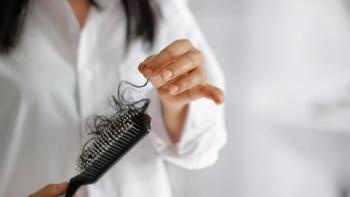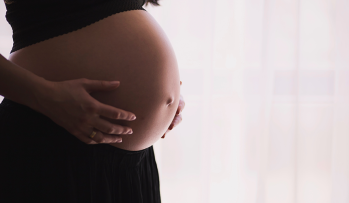Trichological Hair Loss Service
Complete our 2-minute assessment today and be matched with a Trichologist who will diagnose and treat your hair loss concern, supporting you every step along your journey.
So, here we will be demystifying hair and pregnancy, so you don’t have to guess. Keep reading to hear our Brand President, Anabel Kingsley, give you the low-down on what to expect from your hair when you’re expecting - from conception past the third trimester.
Can coming off The Pill affect hair growth?
Yes, it can. This is because hair growth is influenced by hormonal fluctuations – and coming off an oral contraceptive pill (OCP) affects hormone levels.
Some women notice temporary extra hair shedding a few months after stopping their OCP – especially if their OCP was very ‘oestrogenic’. Oestrogen helps to keep strands in their growth phase – and a sudden dip in this hormone can cause shedding. This is similar to what happens post pregnancy, but to a lesser extent. (More on this in Q4!)
Not everyone notices changes to their hair after stopping an oral contraceptive pill. Also, changes aren’t always negative. Depending on the pill you were taking, and your body’s reaction to it, you may actually notice improvements.
What happens to hair when you’re pregnant?
It is one of many hair myths to say ‘hair is always marvellous during pregnancy’. It can be, but this really isn’t always the case. All women are different; there is no ‘normal’ reaction of hair to pregnancy. It very much depends on your body chemistry, and it can differ throughout trimesters and from pregnancy to pregnancy.
Here is a run-down of a few things that may happen and why:
Your hair may become thicker
Many women report that their hair falls out less during pregnancy, and that it becomes much thicker and more voluminous. A main reason for this is that levels of oestrogen, a female hormone that helps keep hairs in their growth phase, skyrocket during pregnancy. For instance, it is normal to lose up to 100 hairs a day, but when you are pregnant you may lose as few as 15 hairs per day.
You also tend to look after yourself better when you are pregnant. I.e. you eat more nutritiously and regularly, and take nutritional supplements, which can also be great for the growth of your strands.
Your hair may shed more than usual
Some women report hair shedding during their first trimester. This is usually nothing to do with pregnancy itself, but it is a reflection of something that happened a few months previously. Due to the way hair cycles, hair sheds in excess 6-12 weeks after the event that caused it. Perhaps the shedding is being caused by coming off your oral contraceptive pill? Or maybe you were going through a stressful period or were unwell prior to pregnancy?
Hair shedding may also occur in the second trimester if you have experienced really bad morning sickness. It can happen, too, if you have pregnancy related medical conditions, such as hypothyroid, gestational diabetes, or iron deficiency.
In any event, please do not worry. Hair shedding during pregnancy is completely temporary. It is also quite unusual to experience hair problems through the whole 9 months.
Can I still take hair-supporting supplements when I’m pregnant?
Always talk to your doctor before taking any additional supplements when pregnant.
What happens to hair post-pregnancy and what can I do about hair loss?
Over 50% of women experience post-partum hair loss a few months after giving birth or ceasing to breastfeed. This is mainly due to a sudden decline in hair-friendly oestrogen. It can also be caused by blood (i.e. Iron) loss during labour, and the sheer emotional and physical stress of giving birth.
Post-partum hair fall can be pretty severe and scary. But please do not worry; it always stops – and just as suddenly as it started. Unfortunately, there is nothing you can do to prevent post-partum hair loss from occurring. However, you can take steps to make sure it doesn’t continue for longer than it should. Certain things can make this type of hair fall worse – most commonly, iron and ferritin deficiency, and not eating well.
My best advice is to endeavour to look after yourself post-pregnancy as well as you did during pregnancy. Eat a nutritious, balanced diet, snack between meals, and take relevant nutritional supplements. Look for supplements containing protein, Iron, Vitamin C, L-lysine, Vitamin B12 and Vitamin D. Our Density Healthy Hair Supplements nutritional supplement supports optimum hair health from the inside out.
Will my hair go back to ‘normal’?
Yes. Post-partum hair shedding usually stops of its own accord within a few months, and hair grows back just as before.
If you have any questions, please pop them in the comments section below and we’ll get back to you as soon as possible.
For more information, visit our ‘Pregnancy and Post-Partum Hair Loss’ page in the Hair Guide.


